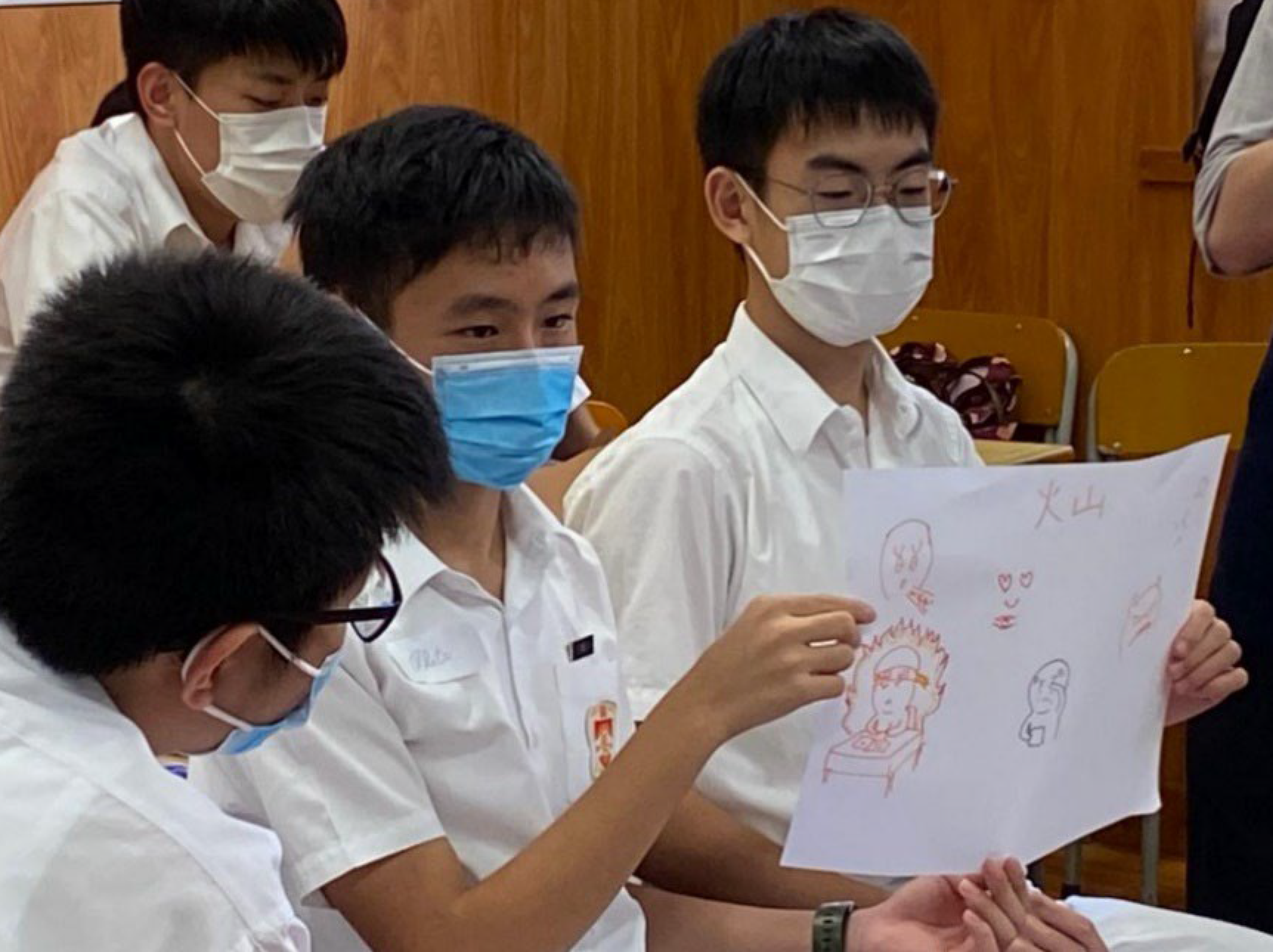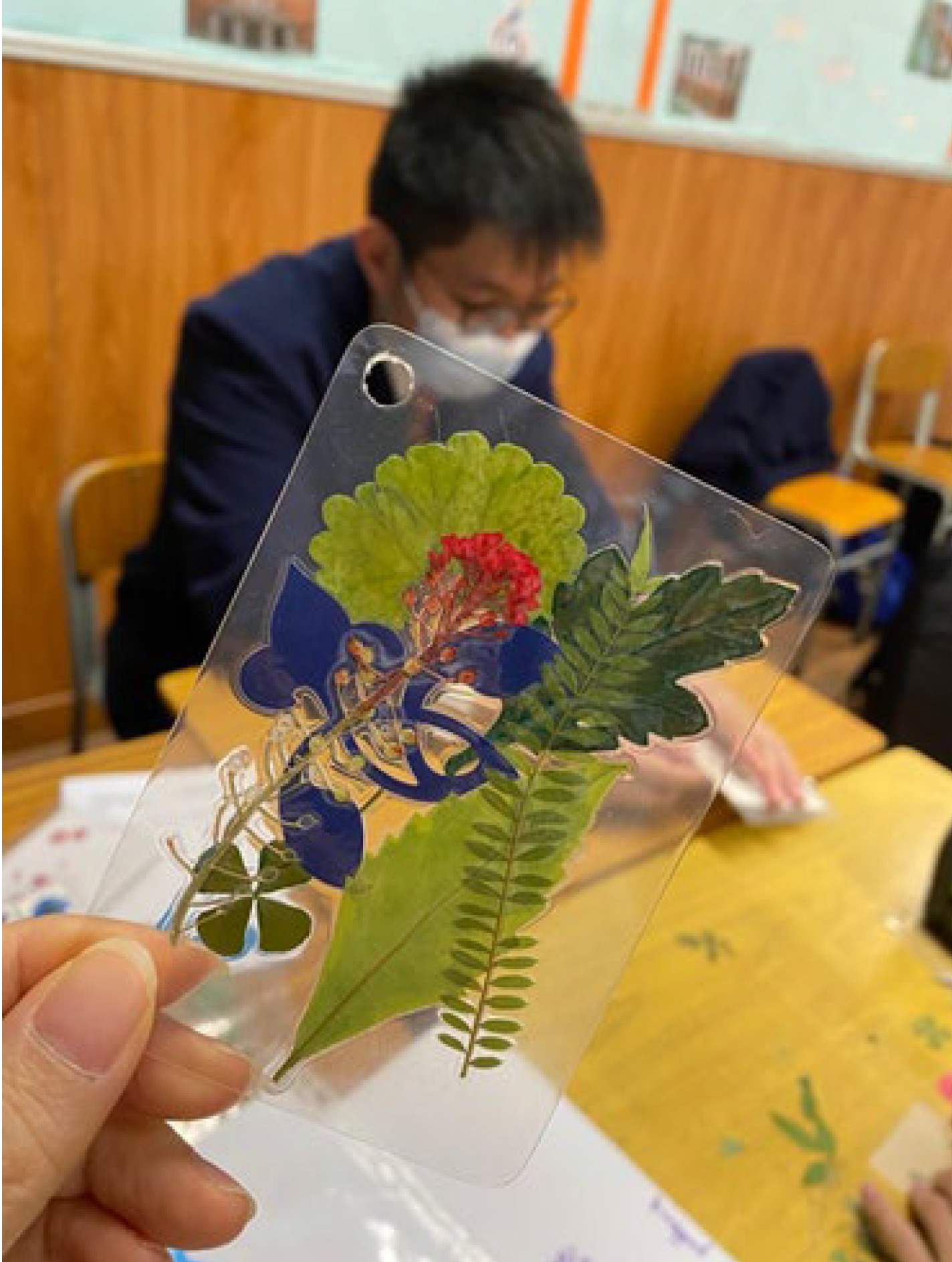King’s College
Promoting Mental Health among Secondary School Students
Collaboration between student support team and counselling team
When catering for students with mental health needs, the student support team (SST), counselling team, school social workers and teachers have to collaborate and communicate seamlessly to formulate person-centred support goals and strategies, and proactively address students’ needs. The school also maintains close liaison with various professionals, such as the school-based educational psychologist, the clinical psychologist and the psychiatric nurse from the Student Mental Health Support Scheme (SMHSS), and the medical social worker, etc. in order to seek comprehensive professional advice, with a view to helping students more effectively. Professionals conduct multiple case conferences through different support platforms to follow up on and review the progress of the interventions for students in need. To take care of students’ physical and mental health in various aspects, the school also encourages them to participate in support programmes and group activities run by different organisations.
Measures to promote students’ mental health
Making good use of professional support
In terms of individual support, starting from the 2018/19 school year, our school has participated in the SMHSS launched by the then Food and Health Bureau in collaboration with the Education Bureau (EDB), the Hospital Authority and the Social Welfare Department. The scheme allows the development of a comprehensive support plan for students in need through a multi-professional platform, and students are arranged to meet different professionals in school on a regular basis. After several years of cooperation, the students participating in the scheme have demonstrated different degrees of improvement in various respects, and the scheme deserves credit for its effectiveness. Under the SMHSS, we have also conducted a mental health screening for students of a particular level so as to understand their mental health needs and follow up on individual students in need.
Training students to be gatekeepers
To train students as one of the mental health gatekeepers, our school has participated in the Peer Power – Student Gatekeeper Training Programme, organised by the EDB in this school year. Comprising interactive workshops, the programme aims to teach students methods to maintain mental well-being, knowledge about common mental illnesses and practical skills to care about peers. In addition, students learn about different ways to release stress and alleviate their emotions. Through a series of joint-school workshops, students may share their school-based experiences and discuss ways to promote mental health activities. Upon completion of the training, students organise activities in school to promote mental health and learn how to root for people around them and to encourage peers in need to seek support.
Our school social workers, playing an important role in counseling work, conduct in-class sharing on the topic of emotions and stress reduction each year. Moreover, our school organises different support group activities for students, such as the Secondary One Students Adaptation Programme, Minecraft Emotional Expression Group, etc., to help junior secondary students recognise and express their emotions through group games. We have also organised the Career Planning and Stress Relief Group in particular to cater for the mental health needs of S6 students who are distressed under the academic pressure.


Students participating in workshops of Peer Power - Student Gatekeeper Training Programme
Letting teachers and students experience mindfulness Home-school cooperation
In terms of school-wide activities, the counselling team and the SST, focusing on positive education, organise various activities. For example, in these two school years, the school has invited professionals to teach the concept of mindfulness during class periods. Through combining mindfulness, multifaceted expressive art and various experimental activities, students are assisted to raise their awareness of their own and others' emotions progressively, learn to accept different emotions and feelings, understand the needs behind them, and learn to adjust emotions. Besides, the school organises seminars for junior secondary students regularly to enhance the awareness of empathy and mutual respect among them, in order to foster a harmonious campus and to encourage students to set goals and adopt a positive attitude towards life. In order to enhance teachers’ sensitivity to mental well-being and identification of emotional problems of students, the school has also organised mindfulness workshops for teachers, and invited the school-based educational psychologist and the clinical psychologist to deliver sharing sessions.
The school believes that parents are the most important stakeholders in supporting the mental health of students, so we have organised workshops on different topics for parents from time to time to help them understand the changes and challenges their children might encounter in their growth. Joining these workshops, parents can learn how to communicate effectively with their children and enhance their understanding of mental health.


S.3 Emotion Management and Positive Thinking Workshops
Case sharing
A student with autism spectrum disorder faced the outbreak of the pandemic when he was promoted to S5, thus making the learning and social adjustment more challenging and difficult. He began to develop symptoms of depression and anxiety, and even had thoughts of committing suicide. In view of this, the counselling teachers and school social workers not only provided individual counselling, but also arranged for him to join the art therapy group. The student learned different ways of expressing himself and the importance of seeking help in a timely manner. In addition, by participating in online group activities and emotion management activities, he continued to gain social exposure and build a support network during the pandemic. After more than half a year of reorganisation and re-start, and with the support of the counselling team, the student successfully completed the S6 study and achieved commendable results in the Hong Kong Diploma of Secondary Education Examination. He and his family were extremely gratified.
Advice on supporting students
Being front-line workers offering support to students, we believe that establishing a close rapport with students is of utmost importance. Empathy, sincerity and unconditional acceptance are uncompromising ways to building relationships. Understanding students’ interests and preferences is conducive to establishing a positive communication with them, making the support much more effective. In addition, setting achievable goals with reinforcement increases students’ motivation to change. It is also important to maintain close home-school cooperation. Teachers may communicate regularly with parents to keep track of students’ situation at home, and to understand the difficulties faced by parents. Teachers may invite parents to join the intervention training so that students’ mental health is enhanced effectively, thus allowing them to grow up happily.
